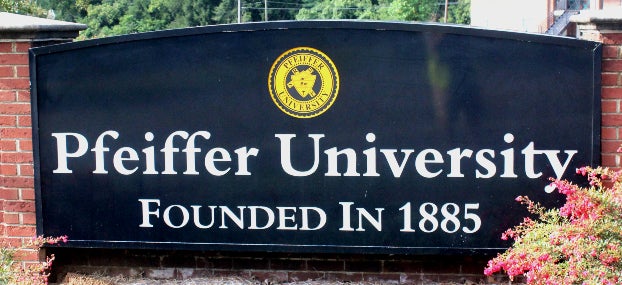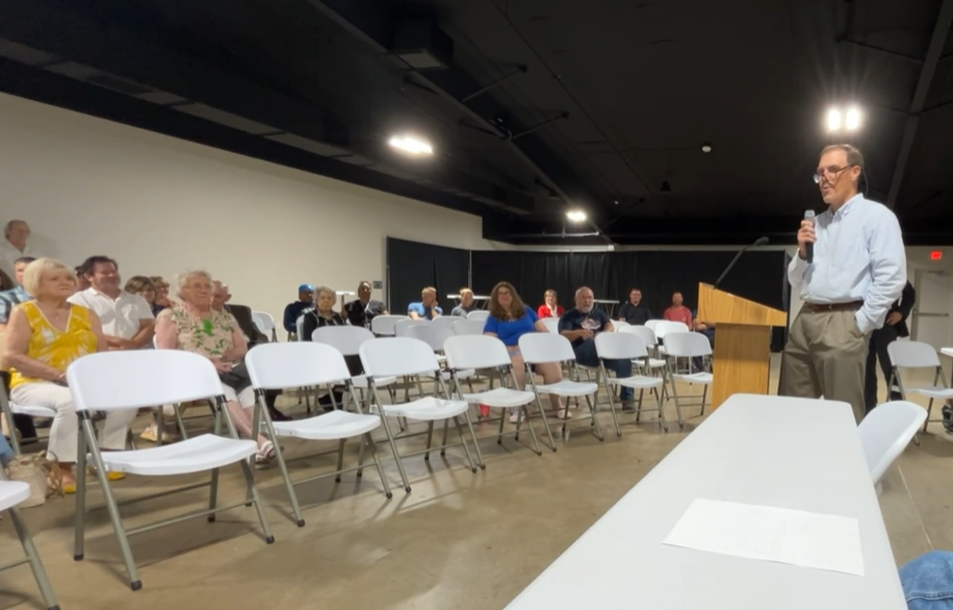Pfeiffer offers new cancer rehab minor
Published 3:59 pm Tuesday, January 16, 2024

- Misenheimer, North Carolina
|
Getting your Trinity Audio player ready...
|
By Taylor Brigman for Pfeiffer University
Cancer survivors often experience disease and treatment-related symptoms. Symptoms can persist months to years into survivorship and include pain and discomfort, cancer-related fatigue, weight changes, poor sleep quality and mental/emotional effects. Exercise and lifestyle interventions have been found to improve symptom severity and positively impact functional capacity and health-related quality of life.
Students in Pfeiffer’s new Cancer Rehab Minor, launched Fall 2023, are exploring how exercise and cancer rehab programming can address cancer care in Stanly County and surrounding communities.
Trending
The new minor developed by Dr. Tom Darling, professor of Health and Exercise Science, is designed to provide undergraduate students with valuable research and clinical experience via Pfeiffer CARES (Cancer Approaches, Research, Exercise, & Support) cancer rehab programming. Students work directly with program participants, contributing to and assisting in educational sessions, exercise testing, exercise prescription and exercise and lifestyle interventions.
“The student experience is significant. As part of the Cancer Rehab Team, students obtain clinical education, hands-on training, scholarship, and service experiences. The Cancer Rehab Apprenticeship [Pfeiffer CARES] and Cancer Rehab Minor provide opportunities to learn, conduct research, and serve the community. Students work directly with cancer survivors and caregivers, addressing individual and rural health needs primarily among underserved groups and communities. The goal is to provide a comprehensive student experience that contributes to science and the field of Exercise Oncology and impacts individual lives,” said Darling.
The research-focused program allows students to study and learn skills that prepare them for graduate school and clinical careers. As part of their training, students present research results at research symposiums and/or scientific conferences. The inaugural team, Jackie Burris (Biology), Josie Luther (Psychology), Gracie Griffin (Clinical Exercise Science) and Josh Turner (Clinical Exercise Science) each presented a poster at the 2nd Annual Health & Exercise Science Research Symposium. In the future, students will have the opportunity to present at regional and/or national scientific conferences.
Luther, who presented “A New Normal: Life as a Cancer Survivor” at the symposium, views this hands-on research and clinical experience as a great opportunity for growth.
“The cancer rehabilitation program here at Pfeiffer is a true blessing. I have gained so much insight into the world of cancer and rehab itself,” Luther said. “I have always had a passion to help people and make a difference in my community and this program gives me that opportunity. My hope is to be an occupational therapist and attend the OT program at Pfeiffer’s Albemarle campus. I want to eventually work in Stanly County and give back to my community. This program has prepared me in so many ways. I have been pushed to think bigger and have learned so much about myself. Dr. Darling has been an amazing supporter and mentor.”
Darling has implemented similar programs at several other universities where he has mentored numerous undergraduate and graduate students, many of whom have moved on to very successful academic, research, and/or professional careers. Darling and a former graduate student who is now a pediatric cancer researcher, for example, published a paper on childhood cancer and treatment effects on motor performance. Other mentees are working in the health field or are in the process of completing medical school or professional training in rehab sciences.
Trending
Darling boasts a 100% acceptance rate for those former students who pursued graduate school, and he attributes his students’ success to the extensive research experience they had as a part of their undergraduate training.
“Students in Pfeiffer’s program are making a great investment in their future,” Darling said. “Expectations are high, the work is challenging, and there’s a big time commitment, but the experience is a great return. Students are prepared for graduate work and professional training. Students have the rare opportunity to contribute to science and clinical practice. And more importantly, students have the privilege to impact individual lives. It’s definitely worth it.”





